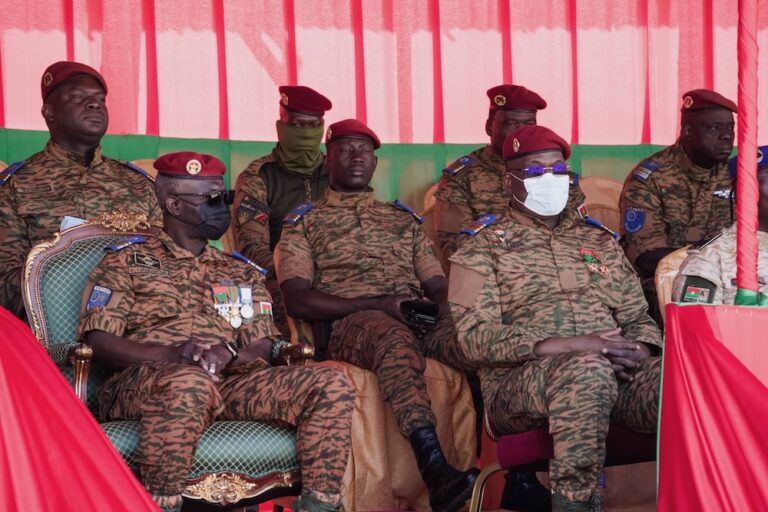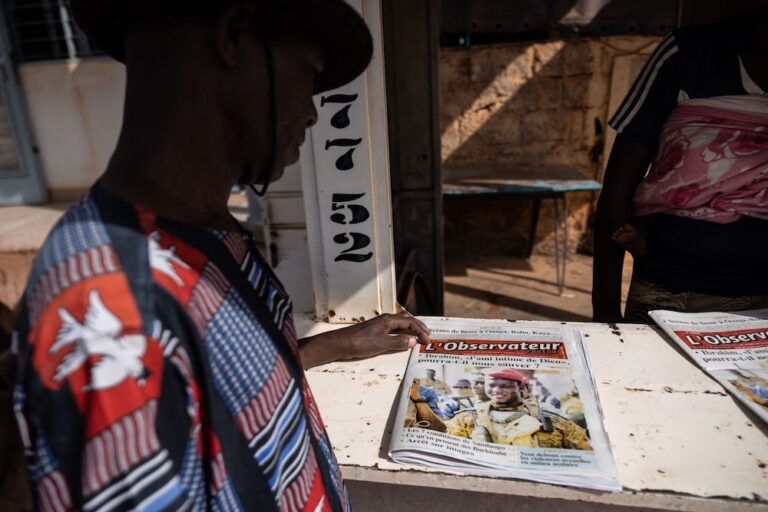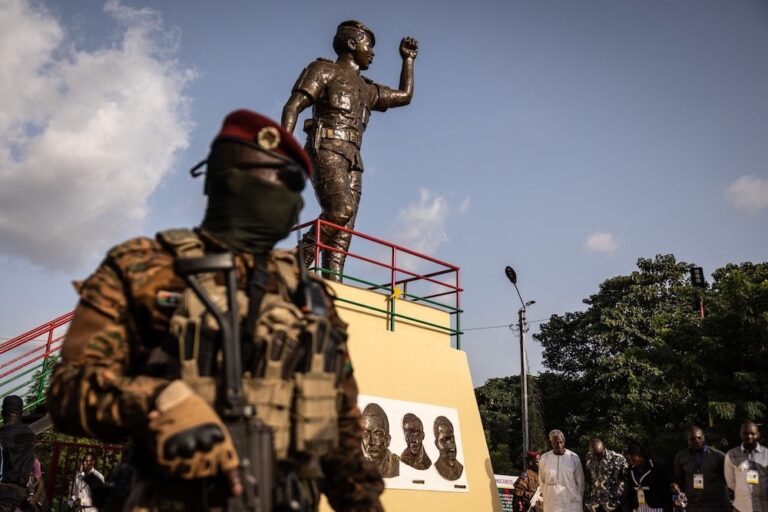(RSF/IFEX) – Reporters Without Borders has said it was stunned by the Burkina Faso public prosecutor’s refusal to reopen the investigation into the 1998 murder of journalist Norbert Zongo and three companions on the grounds that the document the organisation gave him on 20 October 2006 did not constitute new evidence as defined by article […]
(RSF/IFEX) – Reporters Without Borders has said it was stunned by the Burkina Faso public prosecutor’s refusal to reopen the investigation into the 1998 murder of journalist Norbert Zongo and three companions on the grounds that the document the organisation gave him on 20 October 2006 did not constitute new evidence as defined by article 189 of the code of criminal procedure.
Public prosecutor Adama Sagnon announced at a press conference on 21 October that the original, unedited version of the report issued by an Independent Commission of Enquiry in 1999, which Reporters Without Borders had given him on 20 October “does not contribute anything new to the case.” Attorney General Abdoulaye Barry described it as “information that is already known.”
“It took eights years of judicial investigation to drop all charges, and just one night to decide not to reopen the investigation,” Reporters Without Borders said. “Burkina Faso’s judicial system clearly functions in a strange way. The prosecutor’s lightning decision was evidently not the result of serious reflection, but rather a hasty, clumsy and politically-influenced response.”
Reporters Without Borders continued: “The prosecutor’s interpretation of the code of criminal procedure is astonishing and biased, to say the least. The information in the report we gave the prosecutor showed that the president’s brother, François Compaoré, and businessman Oumarou Kanazoé lied to the independent commission. It also showed that the Zongo murder was closely linked with murder of François Compaoré’s chauffeur, David Ouédraogo. And it revealed how and why Kanazoé and the then prosecutor, Dramane Yaméogo, tried to silence Zongo prior to his murder.”
The organisation added: “Nothing so far shows that any serious attempt was made to shed light on these facts. We therefore insist that they are liable to ‘strengthen the accusations that have already proved too weak’ or to ‘contribute new developments useful in establishing the truth’ – the conditions for reopening an investigation.”
The version of the Independent Commission of Enquiry’s report which Reporters Without Borders gave the public prosecutor on 20 October was the original one, the one the commission drafted before it was toned down on the insistence of two of its members who represented the government.
The final version completely eliminated certain passages about the contradictions in François Compaoré’s statement to the commission, and Kanazoé’s attempts to silence Zongo prior to his murder. The original report’s conclusions were also much more assertive and specific, identifying “six main suspects,” all members of the presidential guard.
According to article 189 of the code of criminal procedure, after investigating judge Wenceslas Ilboudo’s decision on 19 July 2006 to dismiss all charges against the leading suspect, former presidential guard chief Marcel Kafando, the case can only be reopened if there are “new accusations” liable to “strengthen the accusations that have already proved too weak” or to “contribute new developments useful in establishing the truth.”


